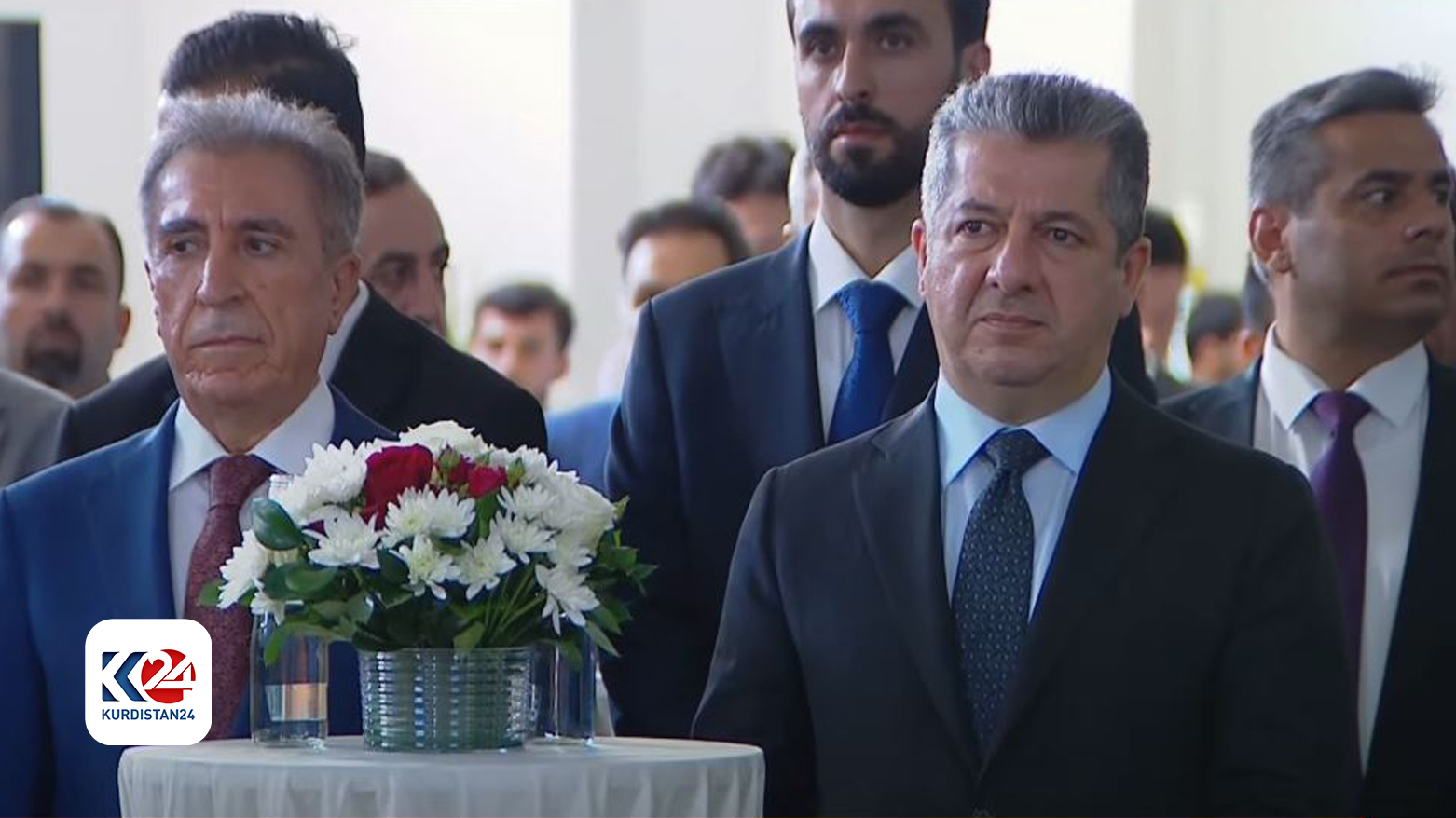PM Barzani launches Slevana wheat marketing factory in Zakho, underscoring agricultural development
Prime Minister Masrour Barzani's frequent visits to different regions of the Kurdistan Region, often marked by the inauguration of agricultural projects, highlight the government's focus on this sector.

ERBIL (Kurdistan24) – Continuing his commitment to bolstering the agricultural sector in the Kurdistan Region, Prime Minister Masrour Barzani today inaugurated the Slevana factory in Zakho Independent Administration, a facility dedicated to marketing wheat produced by local farmers.
This move marks another significant step in the ninth cabinet's agenda to revitalize the agricultural sector and support local farmers.
Prime Minister Barzani's frequent visits to different regions of the Kurdistan Region, often marked by the inauguration of agricultural projects, highlight the government's focus on this sector.
He has repeatedly emphasized that the development of agriculture and water resources is a key priority for his administration, and they remain committed to supporting farmers in every possible way.
This focus comes in stark contrast to the situation four years ago, when farmers faced challenges selling their produce, leading to decreased yields and an over-reliance on imported products.
The situation was so dire that farmers, frustrated by the lack of market access, resorted to discarding their crops on the streets.
However, under the leadership of Prime Minister Barzani, the ninth cabinet has significantly increased investment in agriculture. The Kurdistan Regional Government (KRG) reports that investment in the agricultural sector has surged from 1.8% to more than 9% of the total investment in the region.
This increased investment has resulted in the implementation of over 2,175 agricultural projects and the digging of around 25,000 wells across the Kurdistan Region in the past four years, showcasing the government's dedication to transforming the agricultural landscape and empowering local farmers.
The Slevana factory in Zakho stands as a symbol of this transformation. It not only provides a much-needed platform for farmers to market their wheat but also contributes to strengthening the region's food security and economic resilience.
